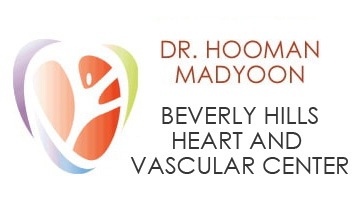No one wants to think about the possibility of a heart attack. However, if you have a family or personal history of cardiovascular disease and other risk factors, then ignorance is not bliss. According to the Center for Disease Control, someone has a heart attack every forty seconds in the United States. Every 36 seconds, someone dies as a result of cardiovascular disease. Overall, more than 18 million Americans over the age of 20 have coronary artery disease. If your doctor is concerned that you are at risk for a heart attack, then you should be concerned too. The next step is preparing for a heart attack. We don’t mean getting ready for one, but taking steps to prevent it ahead of time.
Preparing for a Heart Attack
Knowing if you are properly preparing for a heart attack can make a big difference in your life. Your heart health is of the utmost importance, and well-worth keeping in your attention. At the Beverly Hills Vein Center, we believe that knowledge can go a long way in keeping you and your loved ones safe.
Staying in the Know
To fully understand your level of risk, you should get a physical annually. Your doctor will be able to infer from your blood pressure, heart rate, and overall physical condition whether or not further tests should be done to evaluate your risk level. At this point, they may suggest a cardiac stress test with your local specialist.
Based on the information provided by your physical and any additional tests, your doctor may suggest alterations to your diet and exercise routine. You should take these suggestions seriously, as they could greatly impact your future health.
In addition to improving your habits and following your doctor’s advice. Here are a few things you can do to help prepare for the possibility of a heart attack and increase the chances that you receive prompt medical treatment.
Inform Family
If your doctor is concerned that you may be at risk for a heart attack, you should inform close family and friends. Entrust someone that lives nearby with a list of your current medications. Make sure the document includes any allergies that you have as well as a basic medical history. If an emergency should occur and you are unable to respond, then this person could provide valuable information to emergency staff. Update the information as needed.
Educate Yourself
Although most of you know that chest pains are commonly associated with a heart attack, the symptoms actually vary a lot more than you probably realize. Sudden nausea, fatigue, shortness of breath, or light headedness are also common indications that you may be experiencing the early stages of a heart attack. Talk to your doctor about what to look out for, especially if you’re female, as women are more likely to have “silent heart attacks.” It isn’t common knowledge, but women also tend to have different symptoms, including pain in the jaw or neck instead of the arm and shoulder.
Be Proactive
If you suspect you may be showing the early signs of a heart attack, don’t wait. Have someone drive you to the closest hospital or call for emergency services. Do not attempt to drive yourself, as a heart attack behind the wheel can cause significant complications for you and everyone around you. It may turn out to be nothing, or it may save your life.
Ask for Help
The absolute best way to prepare for a heart attack is to prevent one from ever happening. If you’re struggling to quit smoking or adhere to healthier habits, don’t hesitate to ask for help. Your doctor will be able to put you into contact with local support groups and therapists that can help you through this difficult transition. You also shouldn’t be afraid to ask family and friends for help. Set strict boundaries for what they should and should not do to help you in order to preserve your relationship, as they try to hold you accountable to the changes you want to see in your life.
Check in Often
If you are at risk, then you should see your doctor more frequently. A visit every few months will help to evaluate your progress and give you a realistic idea of how your risk factors are evolving based on your lifestyle choices and genetic history. We provide the best heart attack treatment Los Angeles has to offer. Call us to keep yourself safe.

